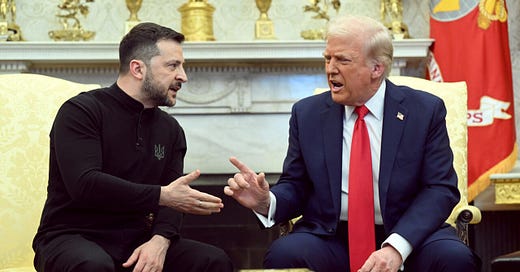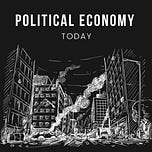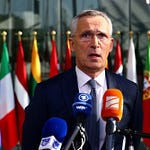Recently I was asked to participate in a speaker series event at Thammasat University (Bangkok, Thailand) on the Ukraine War and the Future of NATO. I was joined by fellow Thammasat faculty member, Brian Robinson of the Economics department, and while I had anticipated some disagreement, my sense is that on many of the more substantive matters we were generally in broad agreement.
Brian opens his discussion focusing primarily on Russian performance on the battlefield and why they (in his view) performed so poorly, relative to prevailing expectations in the months following February, 2022.
My own discussion focuses less on the causes of the conflict (my sense is that if you don’t think Russia was provoked you probably have your mind made up at this point, see my references below) and more on how it is likely to end and what a sensible policy moving forward might look like.
I frame my discussion more generally within the context of what a world systems approach can tell us about the contemporary world historical conjuncture through the lens of this conflict, Trump 2.0, and waning US hegemony. I use three questions to focus my discussion:
How is the Ukraine war likely to end?
What is the justification for NATO in a post-Cold War era?
What are the prospects for a new global security architecture?
George Galloway said in a recent episode of his MOATS podcast that the Ukraine conflict is likely to be the defining conflict of the next 50-100 years. I’m not so sure he’s wrong. I think there is a broad sense that the world is clamouring for a global reset, the kind that we got after both WWI and WWII (the latter set of reforms having learned from much of the follies of the first). The question it seems to me is whether or not we can achieve the next global reset without having to go through another world war.
If we can’t resolve this, it seems to me there is a not insignificant possiblitlity that we are already on the glide path to the most catastrophic of outcomes. And the very fact that we are left with Trump at the helm, that he is somehow both our best and worst chance at avoiding nulcear holocaust, really should tell us something about the perverse character of the capitalist world system in the 21st century.
REFERENCES
Beebe, G., & Lieven, A. (2024). The Diplomatic Path to a Secure Ukraine. Quincey Institute for Responsible Statecraft.
Evans, A. et al. (2025, February 24). Russian Offensive Campaign Assessment. Institute for Study of War.
Horton, S. (2024). Provoked: How Washington Started the New Cold War With Russia and the Catastrophe in Ukraine. Libertarian Institute.
Ishchenko, V. (2024). Towards the Abyss: Ukraine from Maidan to War. London: Verso.
Jeffrey Sachs EU Parliament Speech Shakes Europe and Middle East. (2025, February 23). YouTube.
Kennan, G. (1997, February 05). A Fateful Error. New York Times.
Moyn, S. (2023). Liberalism Against Itself. Yale University Press.
Pancevski, B. (2024, September 17). Toll of Dead and Injured Hovers Near One Million in Ukraine War. Wall Street Journal.
Prashad, V. (2025, January 16). All Wars End in Negotiations. So Will the War in Ukraine. Tricontinental Institute for Social Research.
Roberts, M. (2025, February 24). Russia-Ukraine war: three years on. The Next Recession.
Stanley, M. (2025, February 24). Ukraine War at 3: The victory we demanded and the attrition we got. Quincy Institute for Responsible Statecraft.
Troianovski, A., Entous, A., & Schwirtz, M. (2024, June 15). Ukraine-Russia Peace Is as Elusive as Ever. But in 2022 They Were Talking. New York Times.
CREDITS
Cover Photo: Saul Loeb, AFP
Intro music: ‘Double Trouble’ by Otis Rush, John Mayall & the Bluesbreakers
Intermission & Outro music: ‘Jumping at Shadows’ by Peter Green’s Fleetwood Mac










Share this post